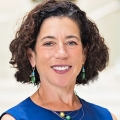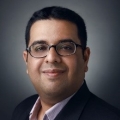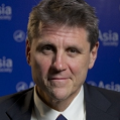This is a web-only event that will be live-streamed on YouTube and Facebook. Viewers can submit questions through comments during the live stream.
Across the world, governments and public health authorities have started to deploy surveillance tools to contain COVID-19. In the United States, the government is working with technology giants like Google and Facebook to use aggregated and anonymized location data of smartphone users to map the spread of the virus. Apple and Google’s recent announcement of a joint effort to build a contact tracing framework follows similar measures in other democracies like Taiwan and South Korea, which saw a high success rate in slowing down the spread of coronavirus infection. However, this success has been marred by unsettling questions about health surveillance, and the legal and regulatory challenges governments and corporations face in protecting citizens’ privacy and freedom. In some countries, cases of local authorities publicizing the names and addresses of coronavirus patients have further inflamed the public’s fears about the government’s encroachment on civil rights. In light of this, how can governments and corporations make the best use of their surveillance powers, while ensuring privacy is protected in the era of COVID-19? Looking into the future, what are some of the long-term impacts of digital surveillance across the globe?
Speakers

Jennifer Daskal is a professor and Faculty Director of the Tech, Law, Security Program at American University Washington College of Law, where she teaches and writes in the fields of cyber, national security, criminal and constitutional law. Prior to joining the Department of Justice, Daskal was a senior counterterrorism counsel at Human Rights Watch, worked as a staff attorney for the Public Defender Service for the District of Columbia, and clerked for the Honorable Jed S. Rakoff. She also spent two years as a national security law fellow and adjunct professor at Georgetown Law Center. From 2016-2017, she was an Open Society Institute Fellow working on issues related to privacy and law enforcement access to data across borders. She is currently a Scholar-in-Residence at New America. Daskal’s scholarship has appeared in the Yale Law Journal, University of Pennsylvania Law Review, Vanderbilt Law Review, Stanford Law Review Online, and Harvard Journal of National Security Law, among other places. She has published widely in leading newspapers such as the New York Times, Washington Post, and The Atlantic, and has appeared on BBC, C-Span, MSNBC, and NPR, among other media outlets. She is also an Executive Editor of the Just Security blog.

Nikhil Pahwa is an entrepreneur, journalist, and activist. He is Founder and Editor of MediaNama, a publication and community focused on helping build an open, fair, and competitive digital ecosystem. Pahwa is currently working on expanding MediaNama’s readership and community in Asia, in order to drive cross-border collaborations on technology policy. MediaNama was recognized as an Ecosystem Builder in India by Fortune in 2016. He also led the Savetheinternet.in campaign in India, the largest grassroots campaign in the history of India that brought together 1.1 million people, leading to the creation of the strongest net neutrality regulations in the world. Pahwa is a leading voice for internet freedom in India. He has advocated for the right to privacy and has pushed back against India’s biometric ID system, censorship rules, and surveillance. He is a founding member of PEN Delhi, the Delhi chapter of PEN International, which campaigns against attacks on writers. He was also the founding chairman of the Internet Freedom Foundation, which works on open Internet issues in India. Pahwa is a TED Fellow and was named one of Indians of Tomorrow Under 35 by India Today in 2012. He is a 2019 Asia 21 Young Leader.

Tom Nagorski (moderator) is Executive Vice President of Asia Society. He joined the Asia Society following a three-decade career in journalism — having served most recently as Managing Editor for International Coverage at ABC News. He serves on Princeton University’s Advisory Council for the Department of East Asian Studies, and the Advisory Board of the Committee to Protect Journalists.
